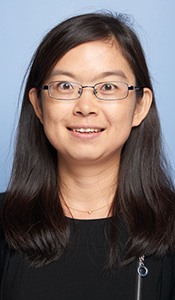Program Information
Learning Relevance Criterion for Multi-Atlas Based Image Segmentation
T Zhao*, D Ruan , UCLA School of Medicine, Los Angeles, CA
Presentations
TH-CD-206-4 (Thursday, August 4, 2016) 10:00 AM - 12:00 PM Room: 206
Purpose: It is important to effectively identify the subset of relevant training atlases in learning based segmentation. Since segmentation based geometry relevance between atlases and the target is inaccessible due to the unknown target segmentation, image feature based relevance criteria have to be used instead. This study aims to learn an image based criterion that best reflects the underlying geometry agreement.
Methods: We learn the image-based relevance criterion in the form of a Mahalanobis distance on linearly transformed image feature, which is specialized to image intensity in this work, and optimize such linear transformation. Given a set of atlases, i.e., image/segmentation pairs, a linear transformation is optimized to make the Mahalanobis distance small between the geometrically relevant atlases and large between the irrelevant pairs. Performance assessment and comparison with the commonly-used mean square distance (MSD), a special case of the Mahalanobis distance with a trivial linear transform, are performed based on clinical brain MR images.
Results: The proposed surrogate learning approach was validated with multi-atlas based corpus callosum segmentation. Compared to MSD, our learned surrogate demonstrated superiority in selecting the geometrically relevant atlases. The learned surrogate yielded an improvement on the average pairwise Dice similarity coefficient (DSC) of the selected atlases from .004 to .007, and a corresponding improvement on the ultimate segmentation accuracy from .003 to .005, over an atlas subset size from 1 to 20.
Conclusion: This work provides a systematic methodology to learn task-specific criterion to select atlases for image segmentation, and demonstrates effectiveness in identifying the most relevant atlases. We are working on investigating various image features and extending to nonlinear transformations for further improvement.
Contact Email:

